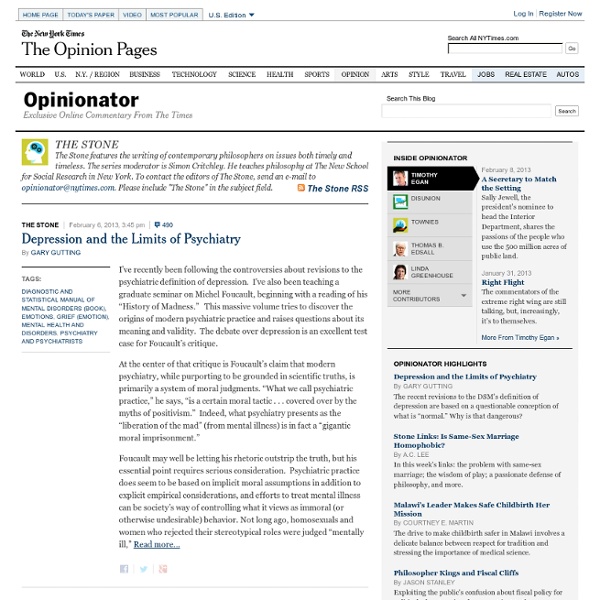Philosophy Pages
Philosophy TV
Ockham’s Beard
Third Person: Politics of Life and Philosophy of the Impersonal
Roberto Esposito puts forth a radical and provocative thesis: the triumph of the category of "the person" that, since the end of World War II has accompanied the discourse on human rights, is not the source of its success, but rather of its failure. The notion of the person, which has, since the days of Roman law and even more pointedly in its Christian elaboration, indicated the transcendent value of a human being, is incapable of bridging the gap between humanity and the logic of citizenship, precisely because it is what creates such a gap. By opposing the person, as something artificial and endowed with moral and political significance, to mere humanity in its naturalness, Roman law gave rise to the "dispositif" of the person (p. 9), that is, to a notion that has, throughout its various Western morphologies, always been able to produce very real and tangible effects. How is this possible despite the triumph of the notion of the person?
Philosophies and Philosophers
philosophy bites
Stanford Encyclopedia of Philosophy
abduction (Igor Douven) Abelard [Abailard], Peter (Peter King) Abhidharma (Noa Ronkin) abilities (John Maier) Abner of Burgos (Shalom Sadik) Abrabanel, Judah (Aaron Hughes) abstract objects (Gideon Rosen) accidental properties — see essential vs. accidental properties action (George Wilson and Samuel Shpall) action-based theories of perception (Robert Briscoe and Rick Grush) action at a distance — see quantum mechanics: action at a distance in actualism (Christopher Menzel) adaptationism (Steven Hecht Orzack and Patrick Forber) Addams, Jane (Maurice Hamington) Adorno, Theodor W. (Lambert Zuidervaart) advance directives (Agnieszka Jaworska) Aegidius Romanus — see Giles of Rome Aenesidemus — see skepticism: ancient aesthetic, concept of the (James Shelley) aesthetics aesthetics of the everyday (Yuriko Saito) affirmative action (Robert Fullinwider) Africana Philosophy (Lucius T. Outlaw Jr.) B [jump to top] C [jump to top] D [jump to top] Damian, Peter (Toivo J.
Julian Baggini — I still love Kierkegaard
I fell for Søren Kierkegaard as a teenager, and he has accompanied me on my intellectual travels ever since, not so much side by side as always a few steps ahead or lurking out of sight just behind me. Perhaps that’s because he does not mix well with the other companions I’ve kept. I studied in the Anglo-American analytic tradition of philosophy, where the literary flourishes and wilful paradoxes of continental existentialists are viewed with anything from suspicion to outright disdain. In Paris, Roland Barthes might have proclaimed the death of the author, but in London the philosopher had been lifeless for years, as anonymous as possible so that the arguments could speak for themselves. Discovering that your childhood idols are now virtually ancient is usually a disturbing reminder of your own mortality. It’s easy enough to see why I fell in love with Kierkegaard. Kierkegaard was not so much an oasis in this desert as a dramatic, torrential thunderstorm at the heart of it.
Rationally Speaking
Stanford Encyclopedia of Philosophy
Philosophical Disquisitions
A Lecture on Ethics
Home > Ludwig Wittgenstein > A Lecture on Ethics Before I begin to speak about my subject proper let me make a few introductory remarks. I will now begin. Wittgenstein, Ludwig, 1929
TPM: The Philosophers’ Magazine



